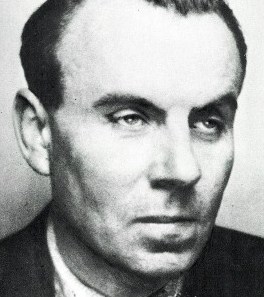Louis-Ferdinand Celine (Louis Louis-Ferdinand Celine)

Author, Physician. Real name Louis-Ferdinand Destouches. A major figure of 20th Century French Literature, he is noted for the spectacular misanthropy of his semi-autobiographical fiction. “It is of men, and them only, that one should always be frightened” he declared, and he portrayed the human race as forever doomed to torment itself with malice, greed and stupidity. Celine’s first and most famous novel, “Journey to the End of Night” (1932), is a first-person rant by the author’s antiheroic alter ego, Ferdinand Bardamu, as he encounters the evils of World War I combat, colonialism in Africa, industrial capitalism in America, and poverty in Paris. Its sequel, “Death on the Installment Plan” (1936), is a scabrous account of Bardamu’s childhood and early adolescence. Black humor and a palpable sense of outrage save these books from slipping into total nihilism, as does Celine’s originality as a stylist. He rejected literary French to write in the coarsest vernacular, and made extensive use of ellipses to convey emotion and the non-linear patterns of everyday thought and speech. His importance as an innovator is generally recognized today, but he remains controversial for his anti-Semitic polemics during the World War II era. Celine was born in Courbevoie, France, and raised in Paris. His parents planned a business career for him and he attended boarding schools in Germany and England to learn the languages, but at age 18 he impulsively enlisted in a cavalry unit in the French Army. During his World War I service he was wounded at Ypres and awarded the Medaille militaire before being invalided out in 1915; the experience shaped his pessimistic worldview and left him with recurring tinnitus and migraines for the rest of his life. Following stays in London and the Cameroons, he studied medicine in Rennes and received his degree from the University of Paris in 1924. (The subject of his doctoral thesis was consistent with the tone of his subsequent fiction: Ignaz Semmelweis, a pioneer of asepsis who was driven mad by the medical community’s rejection of his proven theories). Dr. F.L. Destouches, as he was professionally known, applied himself to treating the poor and went on medical missions for the League of Nations in Africa, the United States, Cuba, and Canada. He was an obscure M.D. at a municipal clinic in Paris when the publication of “Journey to the End of Night” brought him immediate fame; he had adopted the pen name “Celine” from his maternal grandmother. The book was nominated for the prestigious Prix Goncourt and its failure to win the prize resulted in a scandal – one of many that would follow. A self-described anarchist, Celine claimed to hate all ideologies (and all levels of society for that matter), but flirted with Communism in the mid-1930s. A visit to the Soviet Union changed his mind, an about-face he described in the essay “Mea Culpa” (1936). He then turned to Fascism and wrote another pamphlet that would permanently taint his reputation: the anti-Semitic “Trifles for a Massacre” (1937), in which he urged a Franco-German alliance to prevent an “international Jewish conspiracy” from starting another world war. At the same time he detested Hitler and would also attack the French in the essays “School of Corpses” (1938) and “A Nice Mess” (1941). Rejected for military duty at the start World War II, he served as a volunteer doctor aboard a French naval vessel which was later sunk by the Germans; after the fall of France in 1940 he resumed practicing medicine in occupied Paris. He published the novel “Guignol’s Band” (1943) through a collaborationist press, though the author’s attitude towards the Nazis appeared to have been one of passive acceptance. Soon after the Liberation, the BBC denounced Celine as a traitor for his political writings and he fled with the remnants of the Vichy regime to Germany (1944) and then on his own to Denmark (1945), where he was imprisoned for over a year. In 1950 a French court convicted him of collaboration in absentia; he was given a one-year prison sentence and declared a national disgrace. The following year he was pardoned and allowed to return to France. Best known among his later works are a trilogy of novels based on his chaotic flight from the Allies: “Castle to Castle” (1957), “North” (1960), and “Rigadoon” (published in 1969). The last was completed the day before his death from a heart attack. Celine’s first two books had a significant impact not only in France but in the US, where their influence can be found in the writings of Henry Miller, Jack Kerouac, Charles Bukowski, Joseph Heller, Kurt Vonnegut, Jr., and William S. Burroughs, among others. (bio by: Bobb Edwards)
Born
- May, 27, 1894
Died
- July, 07, 1961
Cemetery
- Cimetière de Meudon
- France

